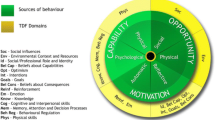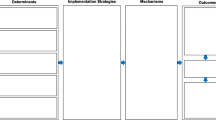Abstract
The process of Choice in TSI is reexamined in this paper. Previously, methods2 have been understood to have a given and immediate purpose and are employed when this is judged to be most suitable in the circumstances. In this paper we suggest that methods can be operated in ways that meet purposes not provided by their founding theoretical underpinnings. We develop this argument by pointing to cases where cybernetic or soft methods are driven by purposes and principles given to emancipatory methodology—in a quest to address more effectively issues of coercion. This may be necessary when explicit and direct employment of emancipatory methodology is not sensitive enough to political dynamics, where certain people may feel overly threatened by its language and consequently feel the need to subvert its use. We develop a defence for thisoblique use of cybernetic and soft methods in coercive contexts, and extend the argument to suggest that all methods can be employed in such a way.
Similar content being viewed by others
References
Ackoff, R. L. (1979). Resurrecting the future of operational research.JORS 30, 198–199.
Ackoff, R. L. (1981).Creating the Corporate Futur, Wiley, New York.
Ackoff, R. L., Vergara, E., and Gharajedaghi, J. (1984).A Guide to Controlling Your Corporation's Future, Wiley, New York.
Ackoff, R. L. (1993). Idealized design: Creative corporate visioning.OMEGA 21, 401–410.
Arce, A., Villarreal, M., and de Vries, P. (1994). The social construction of rural development: Discourses, practices and power. In Booth, D. (ed.),Rethinking Social Development, Longman, Harlow, Essex.
Beer, S. (1981).Brain of the Firm, Wiley, Chichester.
Beer, S. (1985).Diagnosing the System for Organisations, Wiley, Chichester.
Beer, S. (1989). The viable system model: Its provenance, development, methodology and pathology. In Espejo, R., and Harnden, R. (eds.),The Viable System Model: Interpretations and Applications of Stafford Beer's VSM, Wiley, Chichester.
Brown, M. (1995). A framework for assessing participation. In Flood, R. L., and Romm, N. R. A. (eds.),Developments in Critical Systems Thinking Plenum, New York.
Checkland, P. B. (1981).Systems Thinking, Systems Practice, Wiley, Chichester.
Checkland, P. B., and Scholes, J. (1990).Soft Systems Methodology in Action, Wiley, Chichester.
Cohen, C., and Midgley, G. (1994).The North Humberside Diversion from Custody Project for Mentally Disordered Offenders, Centre for Systems Studies, University of Hull, Hull.
Cummings, S. (1994). An open letter to Total Systems Intervention (TSI) and friends: A postmodern remedy to make everybody feel better.Syst. Prac. 7, 575–588.
Espejo, R., and Harnden, R. (1989).The Viable System Model: Interpretations and Applications of Stafford Beer's VSM, Wiley, Chichester.
Espejo, R., and Schwaninger, M. (1993).Organisational Fitness: Corporate Effectiveness Through Management Cybernetics, Campus Verlag, New York.
Flood, R. L. (1990).Liberating Systems Theory, Plenum, New York.
Flood, R. L. (1993a).Beyond TQM, Wiley, Chichester.
Flood, R. L. (1993b). Practicing freedom: Designing, debating and disemprisoning.OMEGA 21, 7–16.
Flood, R. L. (1994). An improved version of the process of Total Systems Intervention.Syst. Pract. 8, 329–334.
Flood, R. L. (1995a).Solving Problem Solving, Wiley, Chichester.
Flood, R. L. (1995b). Total Systems Intervention: A reconstitution,JORS 46, 174–191.
Flood, R. L., and Jackson, M. C. (1991a).Creative Problem Solving: Total Systems Intervention, Wiley, Chichester.
Flood, R. L., and Jackson, M. C. (eds.) (1991b).Critical Systems Thinking: Directed Readings, Wiley, Chichester.
Flood, R. L., and Romm, N. R. A. (1995). Diversity Management: theory in action.Systems Practice,8, 469–482.
Flood, R. L., and Zambuni, S. (1990). Viable Systems diagnosis. I. Application with a major tourism services group.Syst. Prac. 3, 225–248.
Foucault, M. (1984). Interviews. In Rabinow, P. (ed.),The Foucault Reader, Random House, New York.
Gouldner, A. W. (1980).The Two Marxisms, Macmillan, London.
Gregory, W. J. (1992).Critical Systems Thinking and Pluralism: A New Constellation, Ph.D. thesis, City University.
Gregory, W. J., and Romm, N. R. A. (1994). Developing multi-agency dialogue: The role(s) of facilitation.Research Memorandum 6, Centre for Systems Studies, University of Hull, Hull.
Habermas, J. (1982). Reply to my critics. In Thompson, J. B., and Held, D. (eds.),Habermas: Critical Debates, Macmillan, London.
Ivanov, K. (1992). Critical Systems Thinking and Information Technology.J. Appl. Syst. Anal. 18, 39–55.
Jackson, M. C. (1982). The nature of “soft” systems thinking: The work of Churchman, Ackoff and Checkland.JORS 9, 17–28.
Jackson, M. C. (1991).Systems Methodology for the Management Sciences, Plenum, New York.
Magidson, J. (1992). Systems practice in several communities in Philadelphia.Syst. Proc. 5, 493–508.
McKay, V. I., and Romm, N. R. A. (1992).People's Education in Theoretical Perspective, Longman, Cape Town.
Mingers, J. (1984). Subjectivism and Soft Systems Methodology: A critique.J. Appl. Syst. Anal. 11, 83–103.
Morgan, G. (1991). Emerging waves and changes: The need for new competencies and mindsets. In Henry, J. (ed.),Creative Management, Sage, London, pp. 283–293.
Oliga, J. (1990). Power in organisations: A contingent, relational view.Syst. Prac. 3, 453–477.
Payne, S. L. (1992). Critical Systems Thinking: A challenge or dilemma in its practice?Syst. Prac. 5, 237–249.
Ragsdell, G. (1995).Creativity and Total Systems Intervention, Unpublished work, Centre for Systems Studies, University of Hull, Hull.
Romm, N. R. A. (1991).The Methodologies of Positivism and Marxism, Macmillan, London.
Romm, N. R. A. (1994a). Symbolic theory. In Romm, N. R. A., and Sarakinsky, M. (eds.),Social Theory, Johannesburg, Heinemann.
Romm, N. R. A. (1994b). Continuing tensions between soft systems methodology and critical systems heuristics.Research Memorandum 5, Centre for Systems Studies, University of Hull, Hull.
Romm, N. R. A. (1995a). Knowing as intervention: Reflections on the application of systems ideas.Syst. Prac. 8, 137–167.
Romm, N. R. A. (1995b). Some anomalies in Ulrich's critical inquiry and problem solving approach. In Ellis, K., Gregory, A., Mears-Young, B., and Ragsdell, G. (eds.),Critical Issues in Systems Theory and Practice, Plenum, New York.
Romm, N. R. A., and Romm, N. L. (1987). Militarizing tolerance: A strategy for creative entry into the 21st century.De Arte 36, 23–26.
Romm, N. R. A., and Sarakinsky, M. (1994). Theories of knowledge in social theory. In Romm, N. R. A., and Sarakinsky, M. (eds.),Social Theory, Johannesburg, Heinemann.
Schön, D. A. (1983).The Reflective Practitioner, Basic Books, New York.
Taket, A. (1992). Book review on Creative Problem Solving: Total Systems Intervention.JORS 43, 1013–1016.
Taket, A., and White, L. (1994a). The end of theory? Euro 13 (Operational Research Society Conference), Strathclyde, July.
Taket, A., and White, L. (1994b). Postmodernism—Why bother.Systemist 16, 175–186.
Ulrich, W. (1983).Critical Heuristics of Social Planning: A New Approach to Practical Philosophy, Haupt, Berne.
Ulrich, W. (1991). Critical heuristics of social systems design. In Flood, R. L., and Jackson, M. C. (eds.),Critical Systems Thinking: Directed Readings, Wiley, Chichester.
Ulrich, W. (1994). Can we secure future-responsive management through Systems Thinking and Design?Interfaces 24, 26–37.
Wexler, P. (1987).Social Analysis of Education, Routledge and Kegan Paul, London.
Wilby, J. (1995). Developing TSI: The critical review mode. In Flood, R. L., and Romm, N. R. A. (eds.),Developments in Critical Systems Thinking Plenum, New York.
Author information
Authors and Affiliations
Rights and permissions
About this article
Cite this article
Flood, R.L., Romm, N.R.A. Enhancing the process of methodology choice in total systems intervention (TSI) and improving chances of tackling coercion. Systems Practice 8, 377–408 (1995). https://doi.org/10.1007/BF02253393
Received:
Revised:
Issue Date:
DOI: https://doi.org/10.1007/BF02253393




